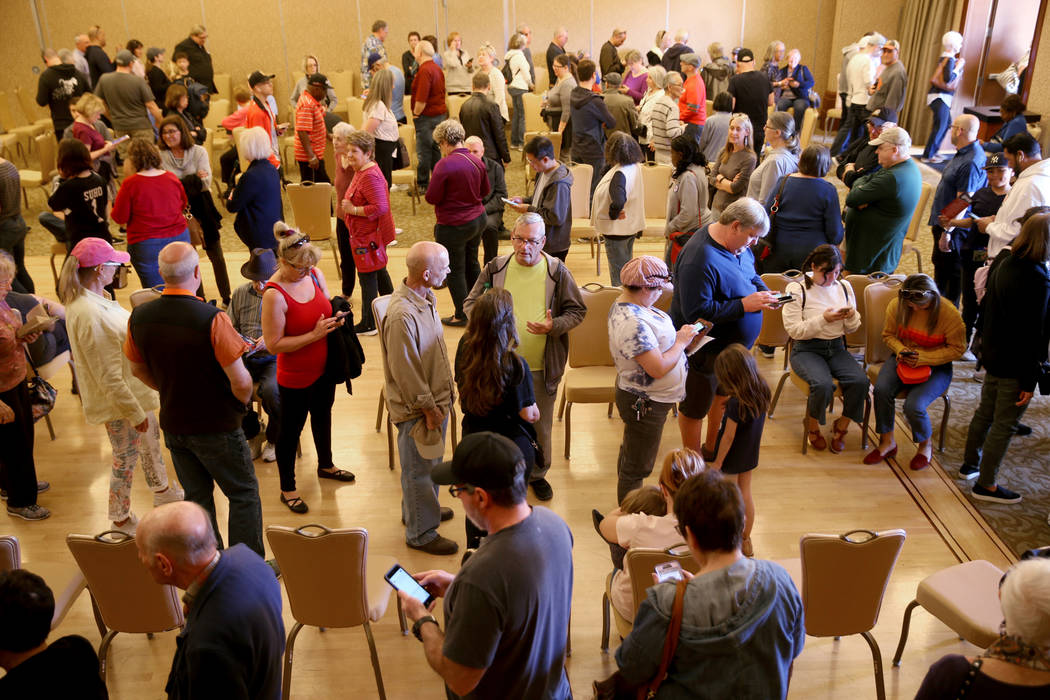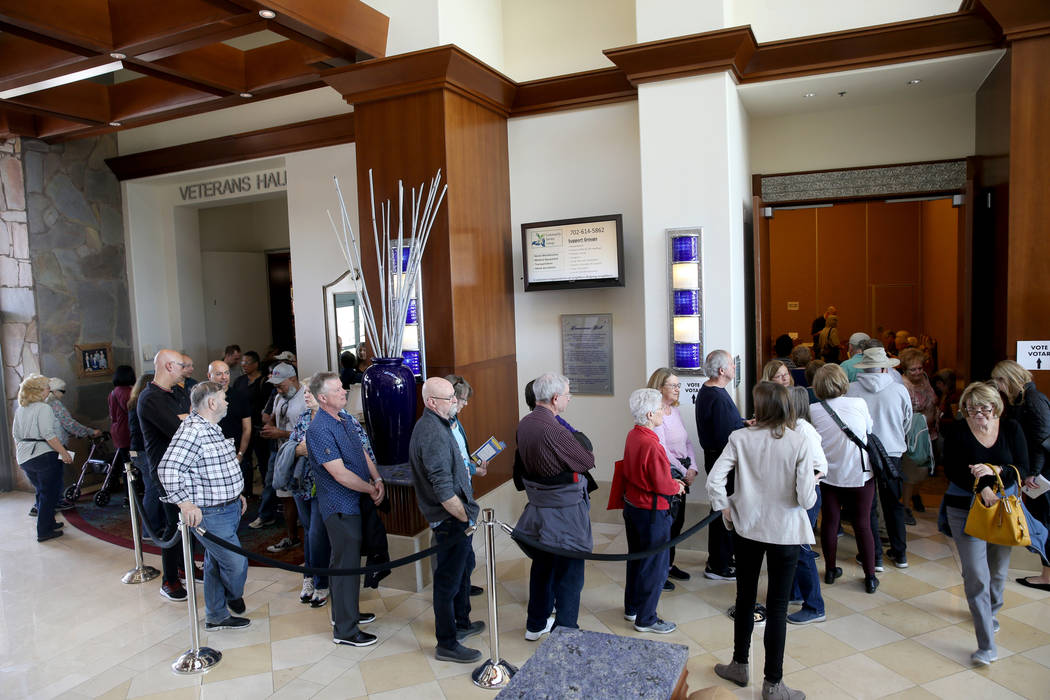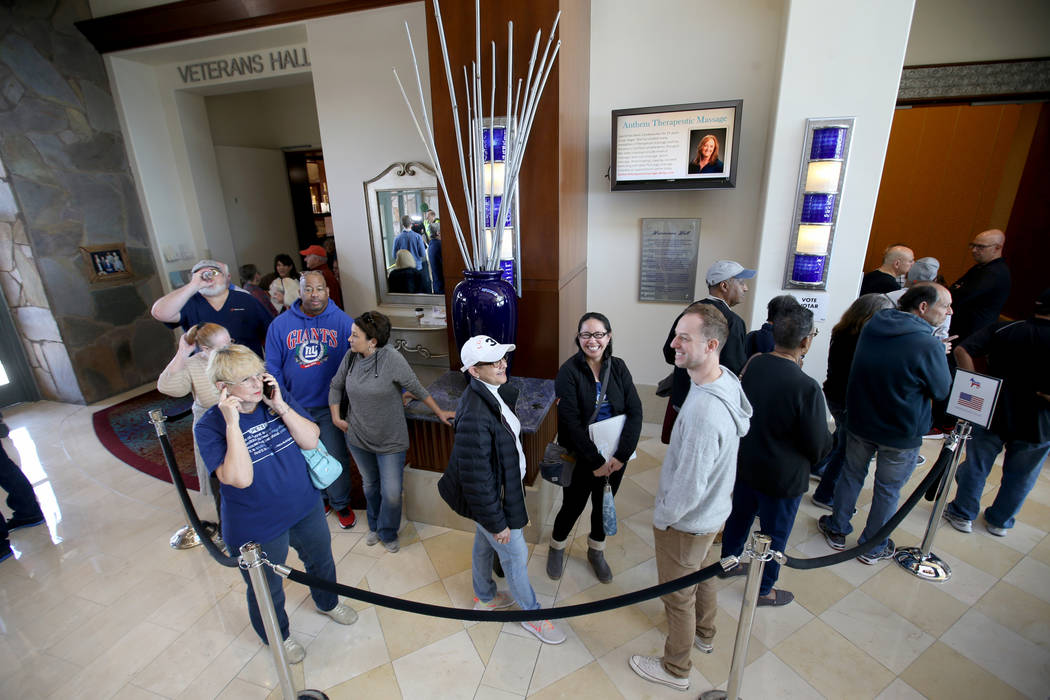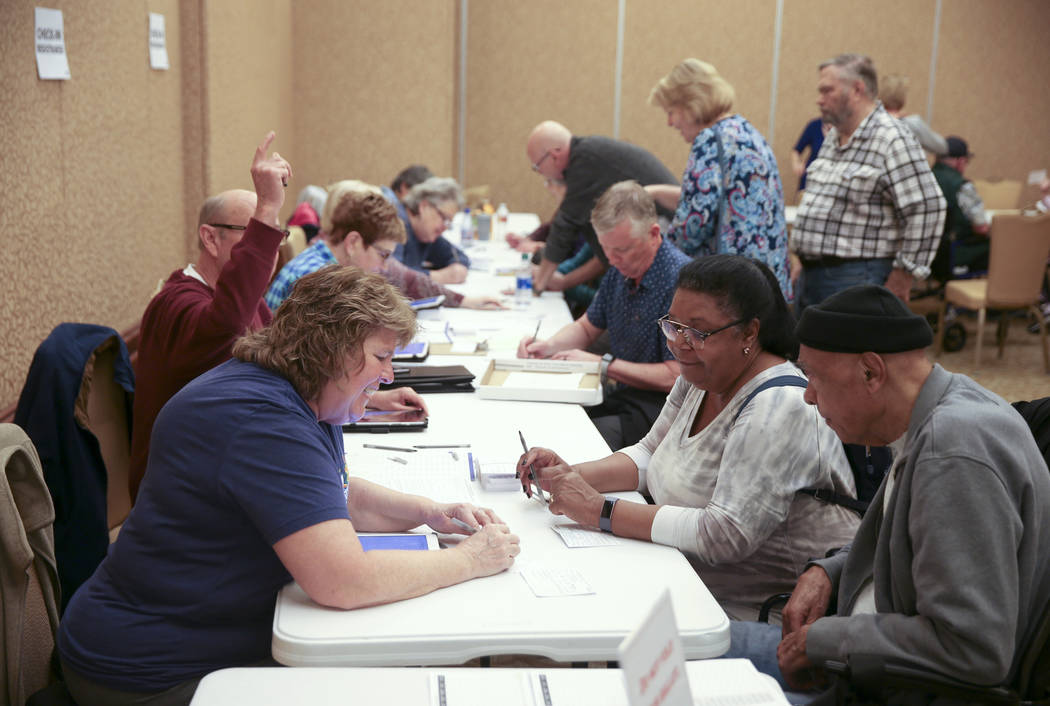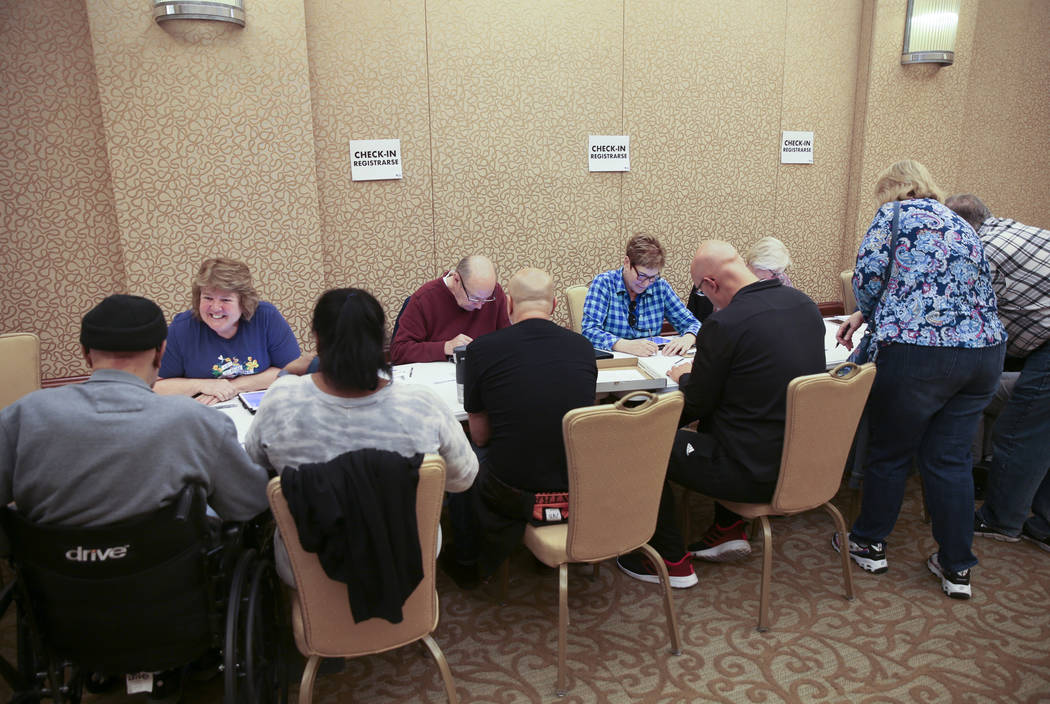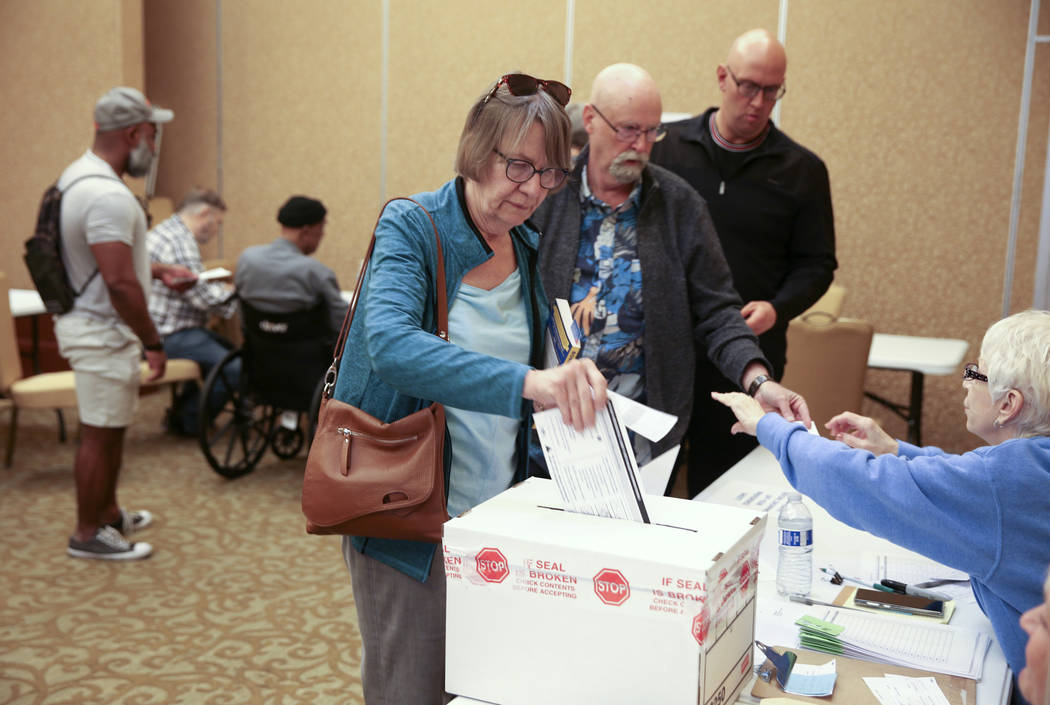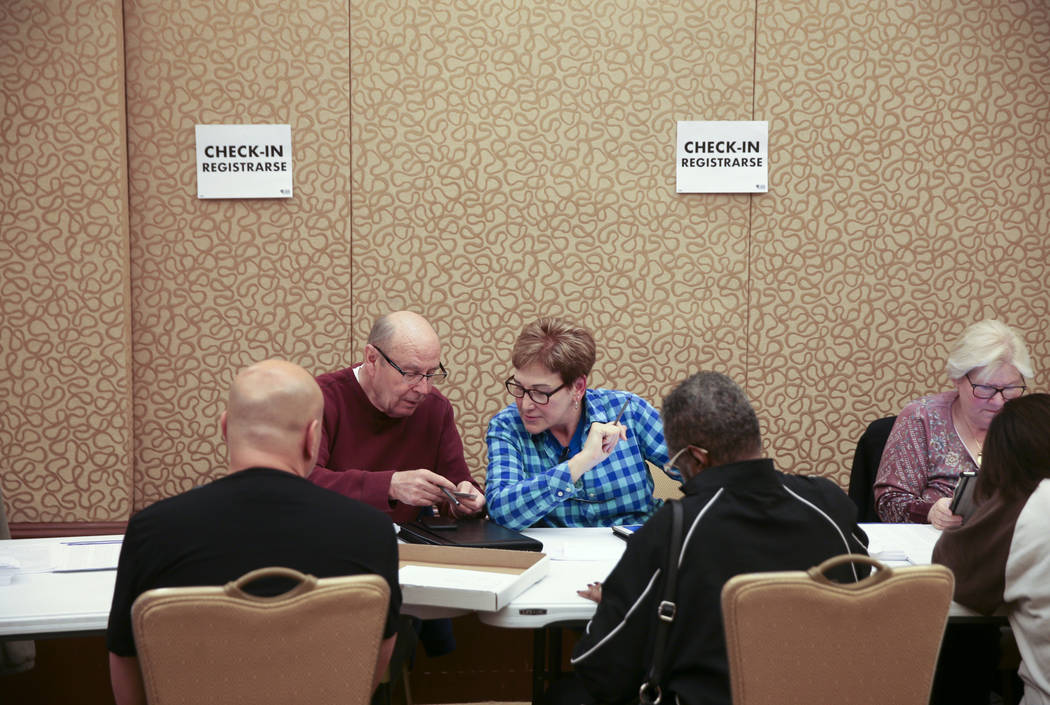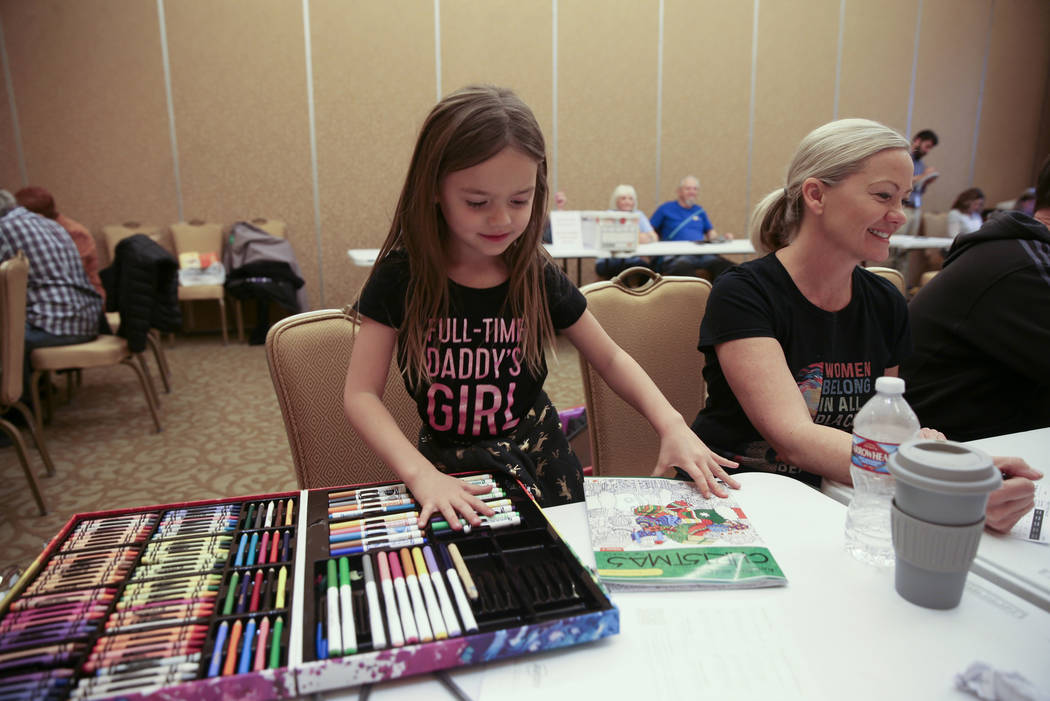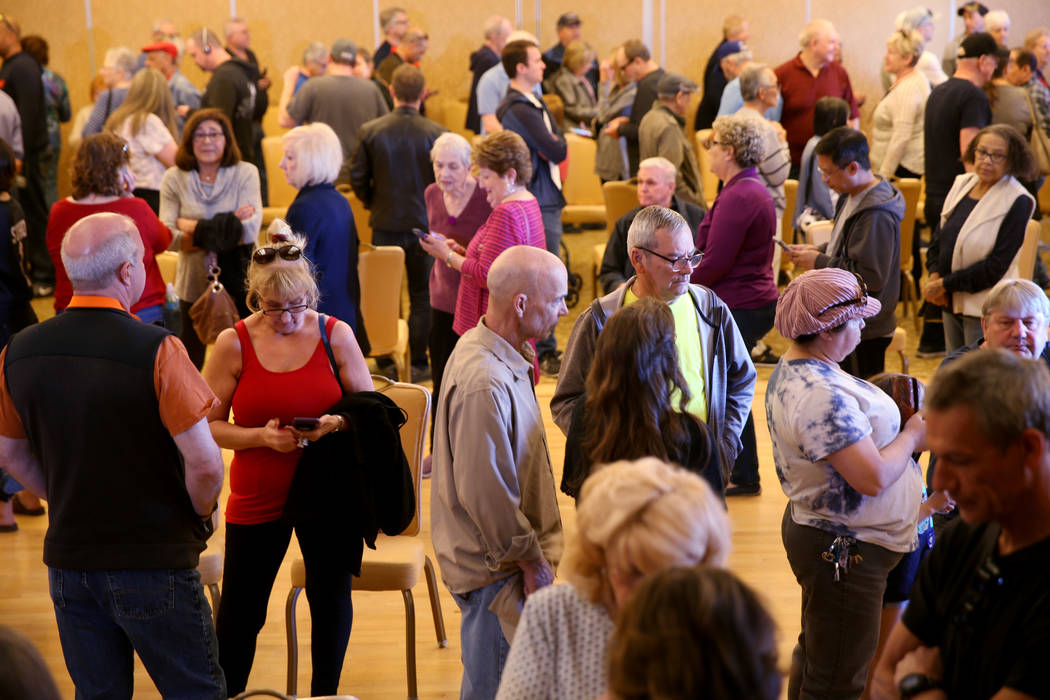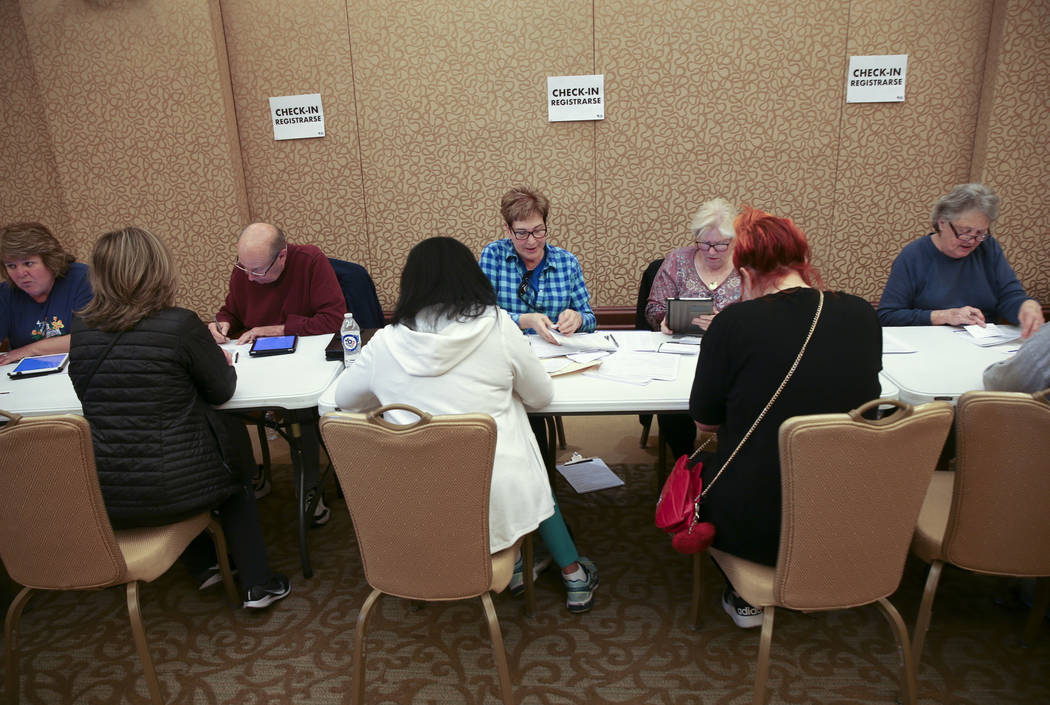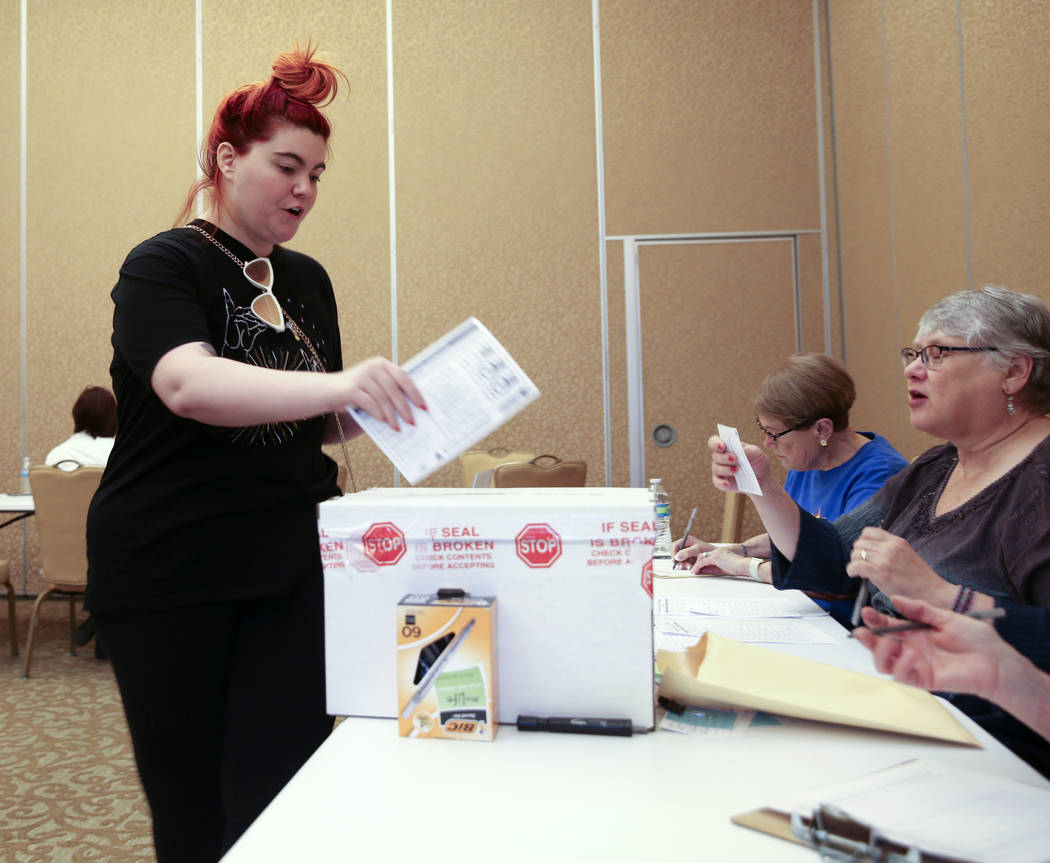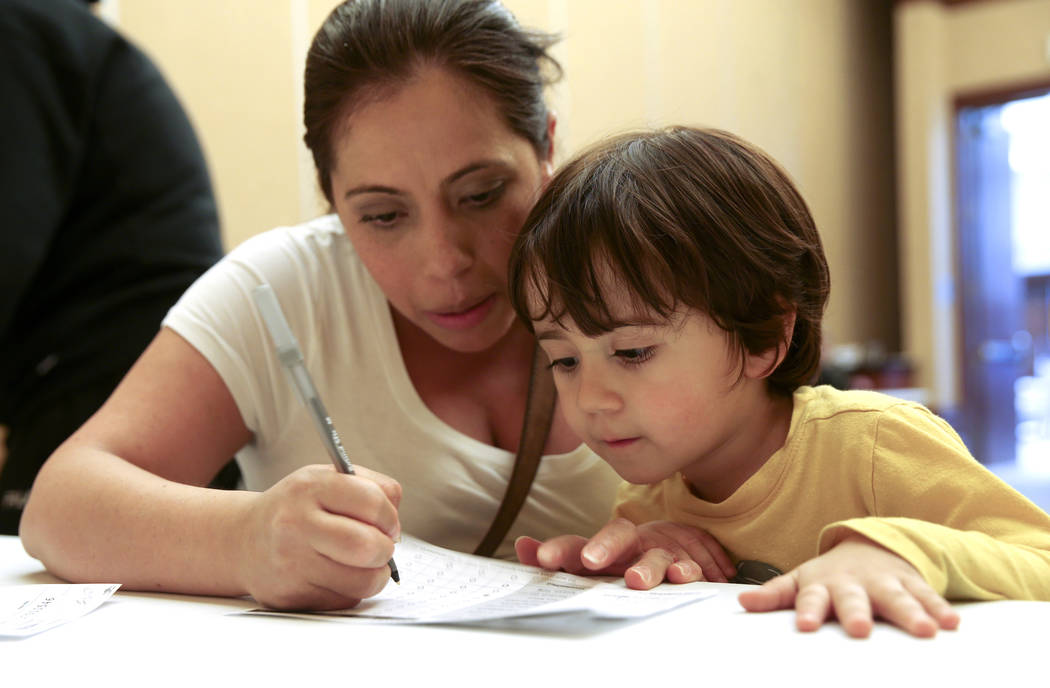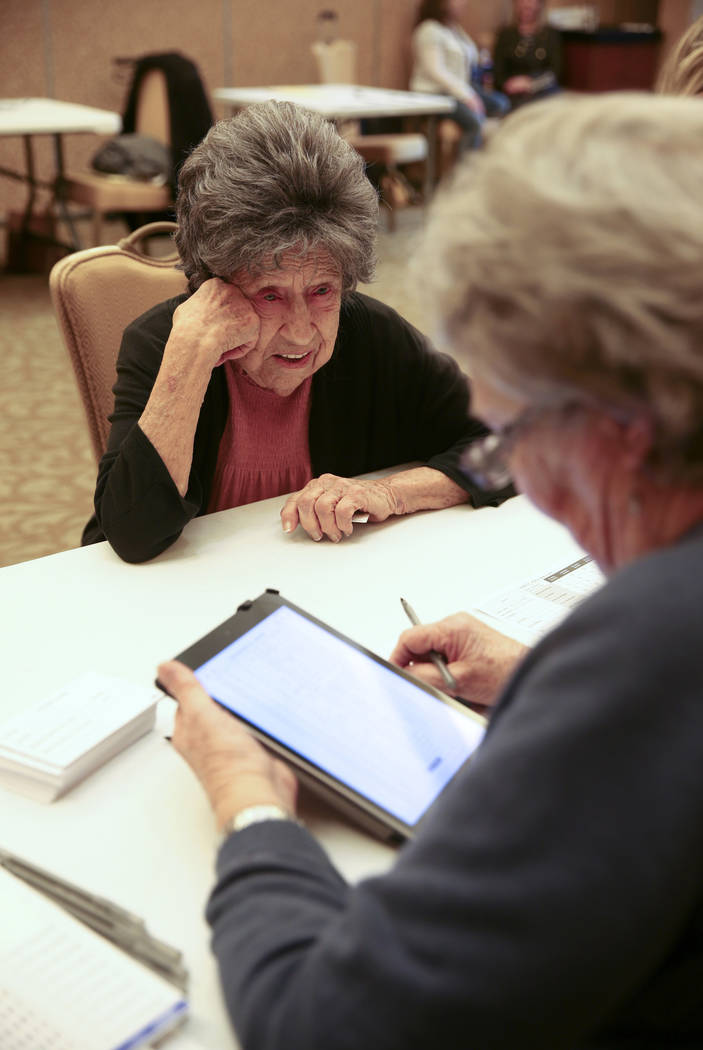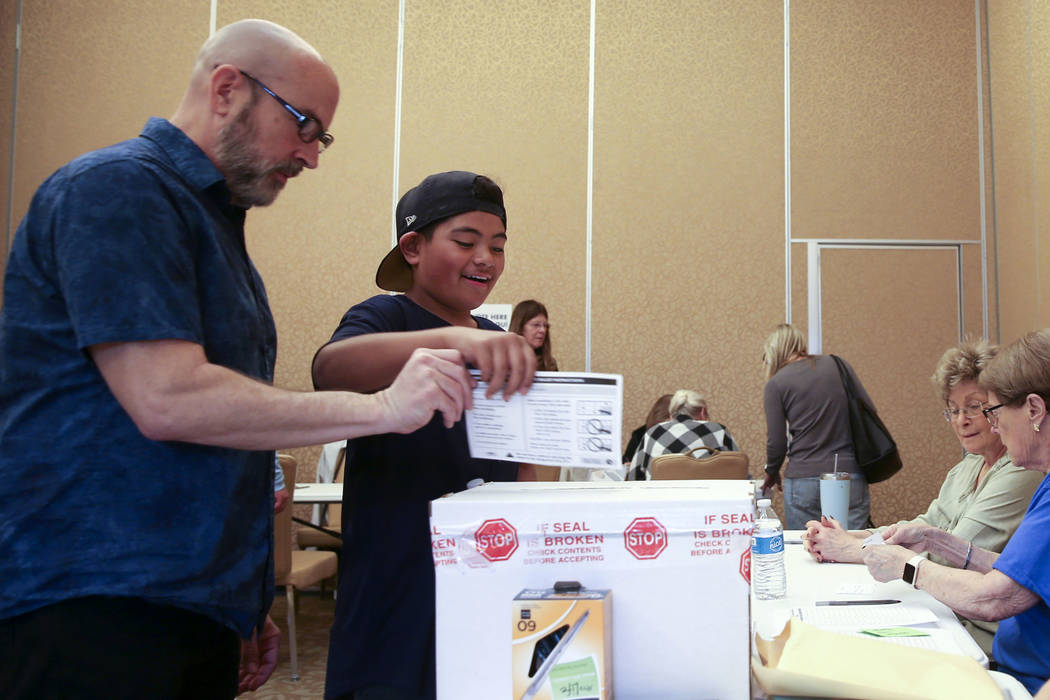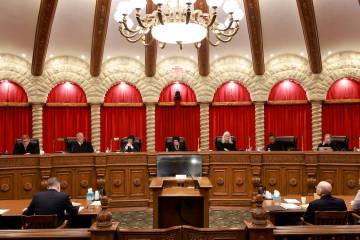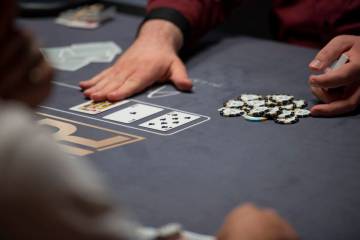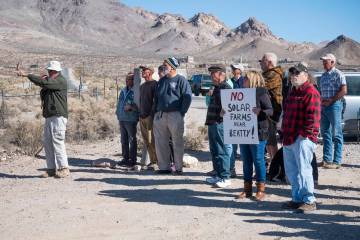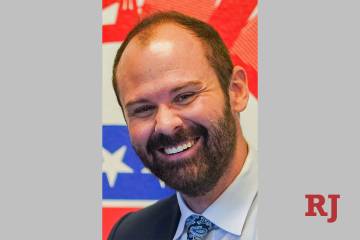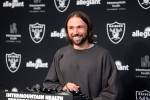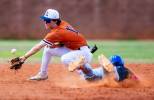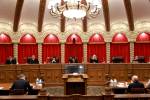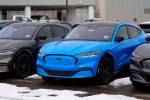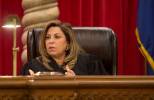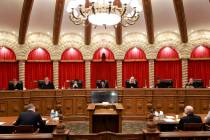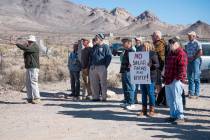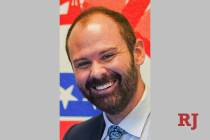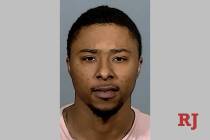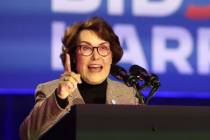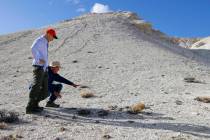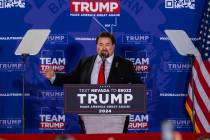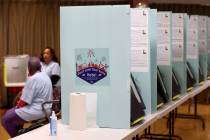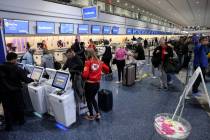More than 26K Nevada Democrats take part in early voting
More than 26,000 Nevadans cast votes during the first two days of early voting in the state’s presidential caucuses, the state Democratic Party reported Monday.
According to the party, more than 18,000 people turned out Saturday, the first day of early voting. This is the first year the party has offered that option in order to increase participation in the caucuses.
The party said Monday that more than half of those voting Saturday were first-time caucusgoers.
On Sunday, fewer early voting locations were available, and they were open for shorter periods of time, which accounts for the smaller number of second-day voters.
On Monday, long waits continued at early voting locations around the valley. Wait times Monday ranged from 20 minutes to more than two hours, depending on the site.
But overall, voters who spoke to the Review-Journal did not report any major issues and thought the process was well-explained.
“It’s happening exactly how we planned it would,” party Chairman William McCurdy II said outside UAW Local 3555 in Las Vegas, where one voter reported a wait time of an hour and a half.
The voter, who declined to be named, said the precinct brought in more volunteers to move the line faster, which she said worked. Despite the wait, she said it did not feel slow.
“We’re all on the same team,” she said.
But the line persuaded another voter to choose shorter lines at Culinary 226 Union Hall instead, where the wait hovered around 15 to 20 minutes by mid-afternoon.
Investing in democracy
Early voting centers in Henderson also experienced strong turnout.
At a voting location in Sun City Anthem, wait times reached more than two hours. The line of voters stretched down a hallway and into a ballroom.
Stanley and Karin Kobashigawa waited nearly 2½ hours to vote at the location. They arrived about five minutes before voting opened.
Karin Kobashigawa said she has been to a caucus before but found the process awkward because some supporters were pushy. She found the early voting process easier. Despite the wait to cast her vote, Kobashigawa said it is worth the time.
“To me, whether it’s a two-hour or a three-hour or a four-hour investment, you’re investing in the fabric of America and democracy, because that’s what is at stake,” she said.
Both Karin and Stanley Kobashigawa said former Vice President Joe Biden was their primary choice.
“You know, I’m not a good debater,” Karin Kobashigawa said. “He’s not a good debater, but you can feel his compassion when he speaks and when he interacts, and who else has given that kind of devotion to his country?”
David Hatton, a site lead at the Sun City Anthem location, said volunteers were using iPads only to verify voter registration. Check-in was recorded on paper.
On Sunday, the AFL-CIO site abandoned using a digital Google Form to check in voters in order to reduce wait times. Democratic Party officials said that alternative was built into the plan to offer sites an option to move lines more quickly.
Avoiding caucus chaos
Massachusetts Sen. Elizabeth Warren spoke to a crowd of hundreds Monday at the College of Southern Nevada campus in Henderson. After her speech, she took photos with supporters, including Derek Flores, who immediately went to an early voting location at the United Steelworkers building on Water Street to cast an early vote for the senator.
At the Nevada State Education Association site in Las Vegas, where voters reported waiting from 30 minutes to an hour, six Democratic voters randomly polled by the Review-Journal said they had a positive experience.
“Last time we went to caucus, and it was absolute chaos,” Aldo Mazzella said, referring to voting four years ago.
Some voters at the NSEA site, including Aldo and his wife, Carol, also noted that they drove to the polls Monday in an effort to skip weekend turnout, which they expected to be crowded.
“I work the second shift, so I hoped that it was a little less busy today,” Will Wright, 32, said.
Brandon, 24, who declined to give his last name, said he had plans over the weekend: “Plus I didn’t want to use all day on Saturday to caucus.”
Brandon said he picked South Bend, Indiana, Mayor Pete Buttigieg as his top choice, with Minnesota Sen. Amy Klobuchar just behind, after his preferred option, entrepreneur Andrew Yang, dropped out of the race.
He said that although he supported progressive stances on health care and education, he believed Buttigieg and Klobuchar were more likely to be able to enact their platform and work with Republicans.
Sanders or bust
“If we’re going to have gridlock with (Vermont Sen. Bernie Sanders), we might as well keep the guy who’s already in there because we already have the gridlock,” he said. “And we’re trying to get rid of that.”
Two voters who preferred Vermont Sen. Bernie Sanders said they had a hard time reconciling voting for another Democrat in the general election if Sanders did not make it through.
“He’s not corrupted by money,” said Chelsea, 36, who declined to provide her last name.
Another voter was open to more of the Democratic field.
“I don’t have a problem with most of the candidates,” Carol Mazzella said.
She prefers Biden, citing his experience, while Aldo Mazzella was more pulled toward billionaire Tom Steyer.
Both said it was most important that a candidate be able to go toe to toe with President Donald Trump.
“He’s probably not going to make it,” Aldo Mazzella said of Steyer. “(But) the fact that he pokes the bear, I like that.”
High stakes
Meanwhile, as early voting wraps up Tuesday ahead of Saturday’s caucuses, McCurdy was confident that there would be no hiccups, whether it be a shortage of volunteers or inadequate training on a calculator being used to track results.
“We will continue to be ready, as we already have, and it will be a successful caucus day,” he told reporters. “And I think the most important question we can answer within the Nevada state Democratic Party is will Nevada repeat what has happened in Iowa. And the answer to that question is no.”
The stakes are high for the party on caucuses day.
“They know all eyes are on us, and if we want to go first and keep the caucus, we’ve got to pull this off,” said Rep. Dina Titus, who has visited caucus locations during early voting.
In the wake of Iowa, some have suggested that other states should take over the role of being first in the nation to vote in the presidential race. Former U.S. Sen. Harry Reid, whose influence moved Nevada up on the nominating calendar, has said Nevada should vote first in 2024.
Titus said the long lines and wait times weren’t dissuading many people from voting.
“They’re just real enthusiastic about voting and getting Donald Trump out,” she said. “If it takes a little while to be transparent, to be accurate and to get more people involved, I think it’s worth it.”
Nevada has used a caucus for decades to award its presidential delegates. But the state saw renewed attention to the process when Nevada was moved up to the third spot on the nominating calendar after Iowa and New Hampshire, in 2008.
In that caucus, when then Sens. Barack Obama and Hillary Clinton were vying for the nomination, roughly 117,000 people turned out to vote.
Four years later, just 12,600 people turned out, as Obama was unopposed for the nomination.
In 2016, as Clinton and Sen. Bernie Sanders were competing for the state, about 84,000 people turned out.
It remains to be seen how many people will turn out on caucus day. However, in a survey of likely Democratic caucusgoers, The Nevada Poll™ found that 59 percent said they intended to vote early, with just 31 percent saying they would vote on caucus day.
Contact Shea Johnson at SJohnson@reviewjournal.com or 702-383-0272. Follow @Shea_LVRJ on Twitter. Contact Blake Apgar at BApgar@reviewjournal.com or 702-387-5298. Follow @blakeapgar on Twitter. Review-Journal politics and government editor Steve Sebelius and The Associated Press contributed to this story.



